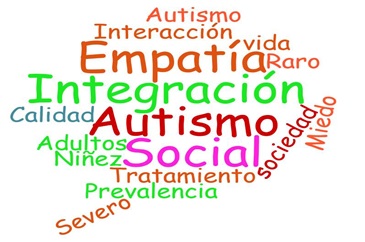Cannabis and Epilepsy

Cannabis and Epilepsy. Beneficial effects of cannabinoids in epilepsy
It is well known that CBD has several effects on neurodegenerative diseases. More recently, a meta-analysis that evaluated more than 1,000 publications from 2019 regarding the therapeutic applications of cannabinoids, revealed a very important fact related with the potential treatment of epilepsy. The study mainly focused in 23 different publications that showed a very positive effect with treatment doses ranging between 1 and 50 mg/Kg/day. In 11 studies there was a clear improvement of the disease, with a significant reduction on the severity and frequency of seizures when using a mean dose of 15 mg/Kg/day. In all of the studies the inclusion of patients within the cannabinoids-treated group or within the placebo group was randomized (more than 700 patients participated in all the different studies). Currently, there are more than 100 clinical trials that study CBD for the treatment of different pathologies.
During 2016 and 2017 there were several clinical studies that focused on types of epilepsies that were resistant to commonly used commercial drugs for the treatment of epilepsy and seizures, and it was shown that CBD significantly reduced the number, severity and frequency of seizures. Moreover, the FDA (drug regulatory agency) has currently approved the oral treatment of childhood epilepsy (Lennox-Gasraut or Dravet syndromes) with the synthetic cannabidiol drug EpidiolexTM.
Why is it effective?
Endocannabinoids (cannabinoids that are usually synthesized by our body) play an important role in reducing the release of stimulating neurotransmitters within the central nervous system, which prevents seizures. As already mentioned (see the endocannabinoid system), both THC and CBD act by means of the CB1 and CB2 receptors. It has been shown that those drugs that improve the activity of these receptors could be used with therapeutic means to treat convulsive disorders. THC is psychoactive, while CBD has little to no psychoactive activity. Nowadays it is known that CDB has more antiepileptic properties and also causes less adverse effects since it has a weak activity on the CB1 and CB2 receptors. Instead, CBD acts through other mechanisms, such as through cationic channels (i.e. TRP) that cause a reduction in the pre-synaptic release of glutamate (the synapse is the region where neurons communicate with each other, Fig.1).

Fig. 1. Schematic representation of the synapse
What is Epilepsy? What causes it?
Epilepsy is a disease associated with a defective communication between neurons (it affects neurotransmission and synapse). It is characterized by a disproportionate amount and spread of such neuronal signals. The origin and progression of this disease can be very diverse but the occurrence of recurrent “epileptic crisis” is a common factor. During an epileptic crisis the neuronal activity is overstimulated. Such increased activity can be sustained for a short period of time but it eventually balances out and returns to its normal state. It affects neuronal circuits that are mediated by glutamate and GABA neurotransmitters. The symptoms of epilepsy can be very diverse, seizures (either tonic, atonic, psychic or sensory seizures) may or may not occur and can be both focal or generalized. They might originate from just a few neurons and give rise to a simple crisis, which causes the patient to have mild hallucinations or be a little distracted from reality, or they can be more complex and cause, for instance, the so called “Jacksonian seizure”.
Epilepsy is underdiagnosed, that is, it is diagnosed less frequently than its actual occurrence, either because it is masked by the presence of more complex diseases or because it may be too mild to be noticed.
There are types of epilepsy that have become resistant to the conventional drugs used to treat this disease and, therefore, finding a therapeutic alternative is of the outmost importance to those people suffering from any of these types of epilepsy.
Cannabis and Epilepsy by Paula Pifarré, PhD. Cannabity HealthCare Scientific Collaborator.
References
- Plancarte-Sanchez, R. et al. Gac. Med. Mex. 2019
- Millar, SA. et al. BJCP, 2019
- Zaheer, S. et al. Cureus, 2018
- Yao, I. et al. Pharm. & Ther. 2019






Responses